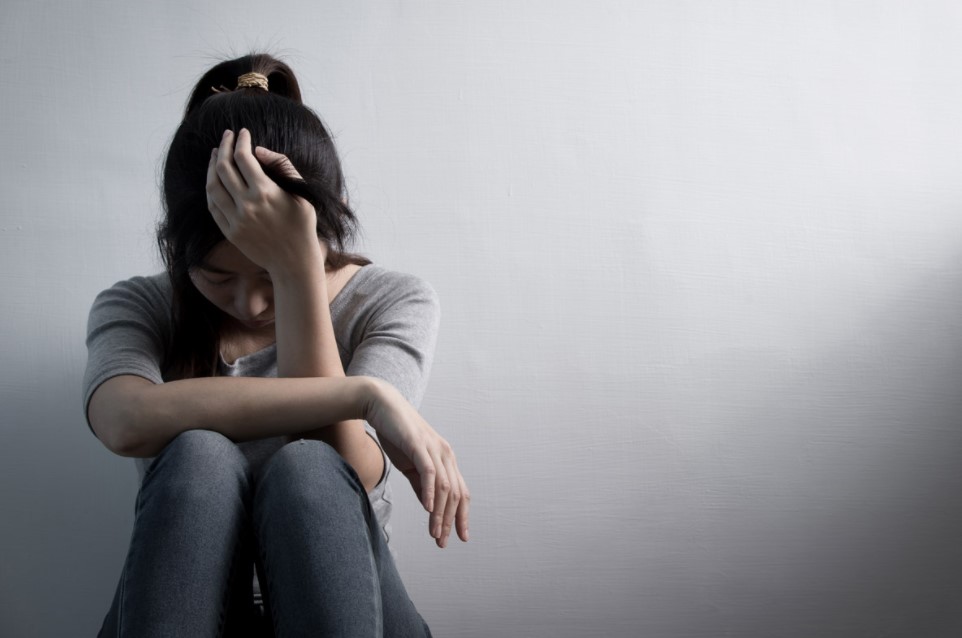
To our readers,
The years 2020 and 2021 feel like a clean break from the reality we were used to; entering into a new dimension, redefining the normal. Not just for a few people, city or country; in fact the whole world is waiting to wake up soon and recover from this nightmare called Covid-19. Sailing through these unchartered waters while holding on to every ounce of hope and struggling to establish the new normal amidst the chaos has been and continues to be a strain on all of humanity. As the world around us turned upside down, we were forced to rethink and re-evaluate our lifestyles, our priorities, our value systems; basically all ideals & frameworks of the way of life in the 21st century as we knew it.
From the sudden lockdown in March 2020 which was accompanied with hope of nipping the spread of pandemic in the bud, to the lockdown of March 2021 accompanied by the horrors of the second wave, everything has revealed the incompetence and inefficiency of our political and social structures. The impact of COVID-19 has been varying in degrees, depending on factors like social status, occupation, financial stability, residential status, etc. While we are all in the same storm, some are on a smaller boat while others are handling it way better in their luxurious yachts. Migrant workers, since the initial lockdown, were one of the worst affected groups; losing their means of earning, grappling with hunger while travelling miles to their hometowns and villages even though the means of transportation were shut. The lack of commuting facilities meant that lakhs of students were also stranded away from home with hostels and PGs refusing to cooperate. While final year students awaiting job placements were forced to grapple with the mental stress of dealing with the online mode of studying and examinations, it was further agitated with lack of proper internet facilities and devices to avail the new forms of learning.
Here, we need to acknowledge the role of the frontline workers like doctors,nurses, health volunteers, police and other groups of people,. who have been exhausting themselves non-stop for more than a year now. While medical students were thrust into this turmoil without completing their training, medical scientists have laboured 24*7 to study the virus and try to reach a solution by developing vaccines. Another paramount contribution is that of the sanitation workers, keeping our surroundings clean and keeping us safe from further unnecessary health crises. The situation was no easier for teachers, especially the middle aged and the older ones, wrestling with the new technological challenges to conduct online classes and stay connected with their students.
The financial strain on almost every class of the society is evident from the deteriorating economy. Many middle class families have used up almost all of their savings to stay afloat, while people who did odd jobs have been struggling to be alive and fed. The extent of crises can be understood as we witness several groups of upper-middle class people,considered to be financially secure, asking for help, having lost their means of livelihood as well as savings. These include budding, upcoming and sometimes, even well-established and popular artists and other members from the entertainment industry or people owning huge retail rented businesses, those belonging to the tourism and travel industry (including massive hotels) striving to stay open amidst sudden decline in tourism. While the burden is less for some compared to being life threatening for others, there is no denying the fact that each and every segment of society has been adversely touched to some degree or the other.
The brunt has been even more diversified on the basis of gender. Being stuck at home all day long with the whole family has taken a toll on the ‘lady’ of the house, compelled to look after the need of every member while taking care of the household (in the absence of any form of househelp) with no break time for oneself from the scrutinizing eyes of their family members, has proved mentally taxing for even the most ’empowered’ women. In this state, one can only imagine the dire situation in abusive households for women and children, especially for the girl child. Senior citizens away from families, depending on neighbours and community support are also trying to survive amidst social distancing and contact restrictions.

In 2020, in its initial stage, the direct effect of COVID felt like a distant happening, however the deadly second wave has left few families unaffected, with a majority of people having lost their near and dear ones, their colleagues or other acquaintances. Although some were lucky enough to recover, even amongst the dire health infrastructure; many lost their lives; intensifying the impact to reach almost every house.The sudden loss of either parent or young children or the passing away of multiple family members while some are struggling in hospitals is a new challenge faced by the whole society collectively contributing to the cluelessness, utter shock, dismay and agitation in facing the future without an answer. The loss of loved ones becomes even more unbearable as we are not able to be with the grieving family members who are left alone to overcome their loss; not to mention the legal and financial issues where the unequipped courts and banks are also struggling with lack of provisions to handle such unexpected burden and disruption of typical routine work. While it is true that time helps in healing, it is applicable only in ordinary circumstances and the pain of going through such unfortunate incidents has increased manifold due to the accompanying crises in every aspect of life.
The lack of societal, occupational normalcy, the financial strain and fighting to avail even the most basic of medical facilities, for instance empty beds or oxygen cylinders, is further mentally draining people. While the tangible misfortunes are no less than a horror show, the mental pressure, negativity, and uncertainty of the future is pushing more people to the brink of depression, many losing their will to live. Keeping ourselves mentally stable just to get through each day at a time also feels like a task and if we are able to, it’s an achievement in itself.
Our detached, impersonal and individual nature as the dominant traits of our current lifestyle have proved fatal to the ongoing catastrophic situation, leading to individual as well as collective emotional and intellectual crises. Rediscovering the simple joys of sharing; staying connected with our neighbours and the community as a whole have become pertinent means to keep ourselves mentally stable. This is evident by several online videos of people coming up with innovative ways ( like members of apartment complexes and housing societies gathering or playing musical instruments in their balconies or singing) to keep themselves occupied,attempting to survive the feeling of emptiness. Being in touch virtually has proved to be the last straw in this sea of loneliness and isolation.
The unprecedented circumstances created by this pandemic, on a bit of a positive note, have rekindled the humanity and importance of emotional quotient in humans around the world. In the wake of the disastrous lack of government capacity to handle the situation, thousands and lakhs of people have been coming forward to help out the distressed. From students arranging fundraisers, to NGOs and volunteers coming forward with food distribution drives, creation of online platforms for regular updates regarding medical facilities and neighbours cooperating with the affected families, each and every member of the society is trying to contribute their bit in fighting this crisis. NGOs, volunteer workers, and the social service sector have been playing a crucial role by stepping up in these times of crisis and doing their best to reach out to the helpless people stuck in the nooks and crannies of the country.

Social media has also been a critical player in the changing and unstable circumstances. From students protesting online for cancellation of exams to people seeking financial help through online fundraisers, it has provided a new platform to connect, reach out and even to lend a listening ear or mental support. While the situation was a bit hopeful in the initial months of 2020 with people trying to focus on productive activities during the early days of the lockdown, the severity of the second wave across the globe and in our country in particular has the majority struggling to survive and stay alive. With the health infrastructure dwindling and governments battling to cope with the ever increasing number of COVID cases, all of humanity has begun to contemplate upon their existing way of life.
This catastrophic event has brought together almost the whole world regardless of race, religion and caste and has compelled us to reassess our society and amend our inhumane practices. This pandemic, though in an adverse approach, has erased all kinds of distinction ranging from national to social to political to financial and have forced everyone to come to their senses as one to help each other out to survive. At the same time, the revelation of deeply etched roots of economic divide and stark contrast of rich and poor across countries, communities, etc., has shocked us to our core. It has also made everyone re-evaluate their ways of treating the environment for granted and neglecting the requirement of balance in nature. Basics of life like a healthy body and mind, the simple joys of staying close to your loved ones, the human touch, the value of friends, the luxury to have freedom of roaming around in large groups, traveling, exploring had once again taken priority over the materialistic competitive lifestyles. There’s a lot which has been taught by this dreadful pandemic and we would like to convey to various people, holding on to the hope that we are capable of creating a better future for the future generations and salvaging our planet.
We, here at Itisaras, are always available to everyone who wants to reach out for help. The catastrophic situation and the losses is something experienced by all of us. In support of our fellow humans, we would like to address the various groups in society and aim to put out our heartfelt emotions as we collectively battle through this pandemic. These open letters, while being for the public, are also an example of how writing can be a coping mechanism as we vent out our anger, frustration and acknowledge the turmoil of emotions inside our hearts. It might also be a way of providing comfort to the readers by displaying that everyone is in a messy situation, and no one is alone in their fear and confusion. Through this, we hope to be an outlet for the bottled up despair and also to provide a bit of encouragement in these hopeless times.
With love,
Team Itisaras
The writer had just finished her M.A. in History from Delhi University and preparing for further studies. Exploring culture, society and learning about the various facets of humanity has intrigued her since childhood and thus she aspires to contribute her bit in making the world a better place.



continuously i used to read smaller articles or reviews which also clear their motive,
and that is also happening with this article which I am reading at this time.